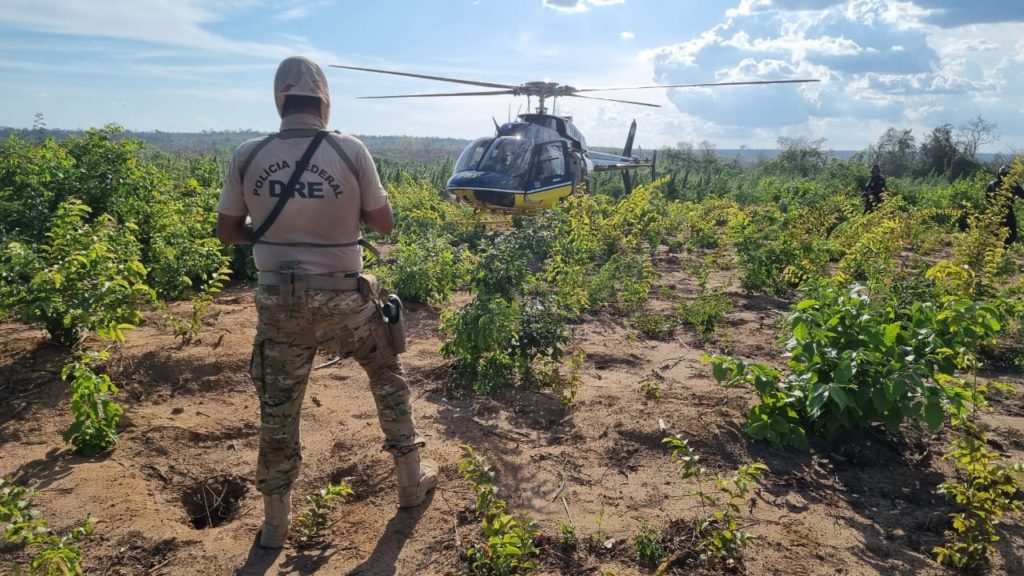
There is a decline of Colombian narcos due to market shifts in the illicit cocaine business. Although Colombia continues to be the largest producer and exporter of coca leaf in the world, other international players are gaining prominence in the manufacture and distribution of this drug. This is according to a journalistic work based on various information from the Colombian Attorney General’s Office, leaked by hackers.
Although Colombia reached a record coca leaf cultivation in 2022, with 230,000 hectares planted, an increase of 13%, and a production of 1,738 tons of cocaine, according to the United Nations, the proliferation of other groups in the market is reducing the criminal capacity of Colombian gangs. Due to this, gangs of Mexicans, Albanians, Brazilians, Ecuadorians and Israelis are beginning to have more power in the global drug trade, according to journalists such as Nathan Jaccard, Latin America editor of the Organized Crime and Corruption Reporting Project, based in Colombia.
‘Narcofiles’, hacker leaks
In 2022, a group of hackers hacked security agencies and armies in Mexico, Colombia, Chile, Peru and El Salvador. In total, seven million emails and 38,000 files were leaked by the anti-imperialist and environmentalist activist group Guacamaya, which gave birth to ‘Narcofiles’, a work that depicts the reality of cocaine trafficking.
Jaccard assured the France Press agency that “the market is mutating”, detecting the expansion of coca leaf crops in Central America, Mexico and even in laboratories in Europe. Jaccard and his team managed to gain access to these emails, which show the role of the banana industry in the export of cocaine and the increase in trafficking along routes such as the Amazon River, through which more and more submarines loaded with cocaine are leaving for the Atlantic Ocean.
Similarly, the fall in the price of cocaine in the markets, as well as the rise of new drugs in the world, such as fentanyl, are also significantly affecting the global cocaine trade to the point that the influence of drug cartels in the country is waning. “Colombia now does not have a leading role in the international drug trafficking chain,” said Elizabeth Dickinson, an analyst with Crisis Group, an independent organization that works to prevent wars.
Bringing production and market closer together to reduce risks
Jaccard explains that “drug traffickers are making decisions to move closer to the markets” to reduce costs and risks while maximizing profits. Due to this, Colombia’s major cocaine cartels, such as the Cali and Medellin cartels of Pablo Escobar’s era, have lost power and influence.
Although large criminal structures continue to operate in the country, such as the paramilitary group known as the Clan del Golfo, the world’s leading cocaine producer, “there is a process of atomization of the groups” which is reducing their power, said Jaccard. The disarmament of the bulk of the FARC guerrillas, with the signing of the peace agreement in 2016, “opened up many spaces” and gave way to local leaderships with “more flexible alliances,” the journalist added.
Similarly, the report speaks of the involvement of the banana industry, which is very important on Colombia’s Caribbean coast. Immigration and tax authorities in European countries have detected the use of the banana industry to camouflage drug shipments from South American countries.
Israelis dominate the market
Israeli and other criminals are entering the cocaine production and trafficking business, competing with traditional Colombian drug traffickers. “Other players are developing that in the future could compete with Colombia in the market,” said Ana Maria Rueda, a researcher at the Ideas for Peace Foundation.
A memorandum between Colombia and Israel, obtained in this leak, describes a “significant increase” in crimes committed in the South American country by Israelis who arrive attracted by sex tourism and have been linked by authorities to cases of international cocaine trafficking.
The Amazon, a drug highway
The Amazon jungle, with its triple border between Colombia, Peru and Brazil, is a place that “until 15 years ago was relatively quiet,” said Jaccard. However, the situation has changed radically in recent times, with the region becoming the gateway for drugs produced in Brazil. Today, the lush, hard-to-control spot is a drug highway, which the countries involved are trying to fight together.
Brazilian criminal groups such as the First Capital Command and the Red Command “have been weaving alliances with Colombian groups” in territories where there is practically no state control, according to these leaks.
Similarly, these reports have also revealed the existence of alliances between these illegal Brazilian gangs and dissident groups from the peace agreement signed by the now-defunct FARC in 2016.
See all the latest news from Colombia and the world at ColombiaOne.com. Contact our newsroom to report an update or send your story, photos and videos. Follow Colombia One on Google News, Facebook, Instagram, and subscribe here to our newsletter.

